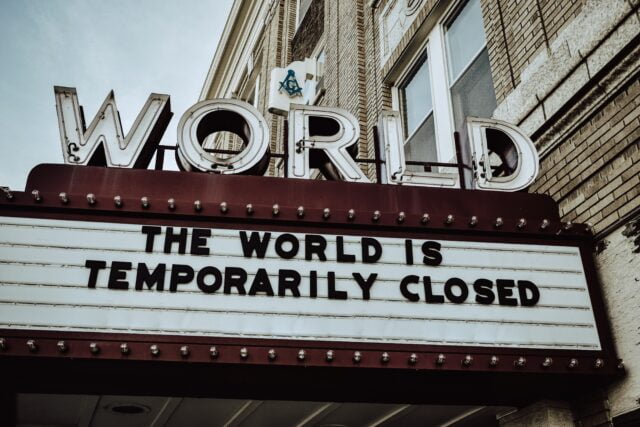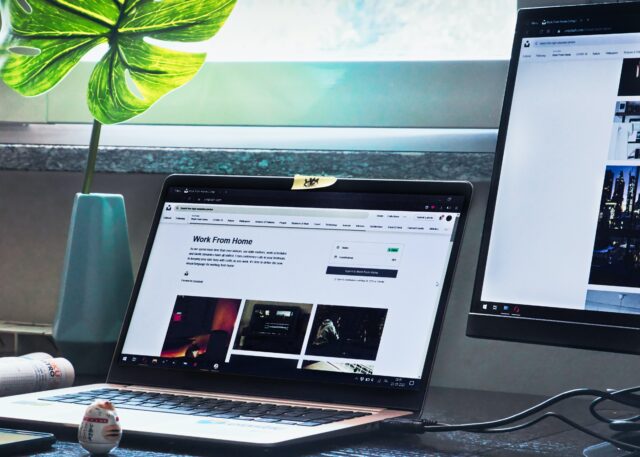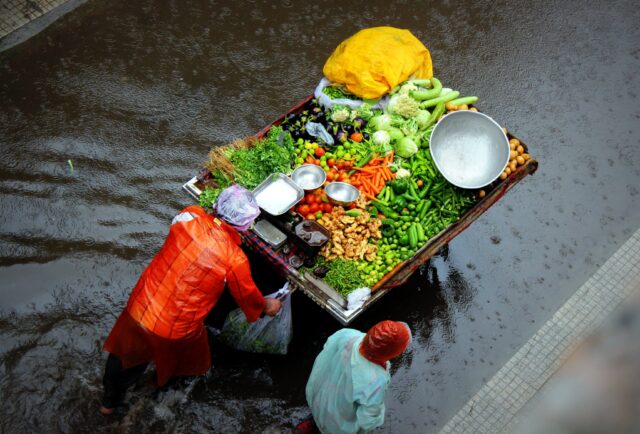It’s been more than 10 months since the COVID-19 pandemic hit us, and in an attempt to cope with it, we have surrounded ourselves in a bubble of false comfort and denial.
Denial because we have now begun to think that we have transcended the material world and desire to give ourselves a sense of false comfort.
By staying at home for a long time, we think that we have finally reached the point that we have been seeking all the time, like ‘nirvana’ or maybe a form of it. And we continue to keep lazying around.

The temptation of the thought, ‘when this pandemic will get over,’ has become the ultimate excuse to justify our laziness. However, we cannot afford to succumb to it. It’s high time that we expose our minds to the painful realities we have denied for too long.
How Did The Pandemic Induced Laziness Began?
When the coronavirus took over the globe in March 2019, it altered life as we know it.
And after a brief period of shock and pause, everything was shifted to business as usual, WFH, classes being conducted online, person-to-person interactions via Zoom calls, and hoards of articles being posted online, recommending to dress up for a day at home just like you would for a day at the office.
The hours, freed up by less work and commute hours were immediately repurposed. People were baking multiple loaves of bread, trying out 100 workouts in 30 days challenges, and learning new languages or skills etc. I was no exception.
Even though the world had hit the pause button I was busier than ever, spending my days checking off items from my ever-growing to-do list.

Now, even I resent the idea that I need to make myself ‘productive’ during a pandemic, to make ‘use’ of it, as though simply surviving isn’t enough. And I have finally recognized that it’s the thinking down the line of being productive, which is more fulfilling than the process or product.
However, it’s important to note that we’re at a point where foundational self-care is one of the first things everybody should focus on to ensure that when things settle down, we can be productive again, not because we didn’t try to just grind throughout the pandemic but to be sure that we’re doing things that will help us navigate forward, not just from a productivity standpoint but from a human standpoint as well.
Mindfully, slowly, and most of all sustainably.
Read more: It Took A Pandemic For Men To Learn Housework Isn’t Just A Woman’s Job
A Jerk Of Global Morbidities
The Earth already has numerous morbidities, which makes a pandemic in comparison, look bleak. After all, the fight over toilet paper and masks are already gruelling enough, let’s not add the question, ‘How are we gonna feed ourselves in the coming years?’ to the list, right?

Given the recent history of continuous hammering of disasters like locusts, cyclones, floods and droughts in various parts of India and across the world, it’s becoming very difficult to see how we can dodge the bullet.
Outdoor temperatures have become too high for humans to tolerate, making subsistence farming an impossible option. Livestock is dying from heat stress. Temperatures have exceeded an alarming threshold, thereby turning major food-producing regions into dust bowls.
Combined with a rising population, only next to China or perhaps on par, and the loss of irrigation water, soil and pollinators, it could push the world to a famine.
A Portal To The Next
It’s as the Indian author Anuradha Roy has rightly said in her article, “Historically, pandemics have forced humans to break with the past and imagine their world anew. This one is no different. It is a portal, a gateway between one world and the next.
We can choose to walk through it, dragging the carcasses of our prejudice and hatred, our avarice, our data banks and dead ideas, our dead rivers and smoky skies behind us. Or we can walk through lightly, with little luggage, ready to imagine another world. And ready to fight for it.”
Whether you agree or not, we have got limited options. Two to be precise.
Either we thicken the bubble of our false comfort with an extra layer of denial and shrug off the threats, such as climate breakdown, and downplay the threat of COVID-19 like the Brazillian President, Jair Bolsonaro, as a hoax, or this could be the moment of choosing a more mindful life, not back to the ugly rat-race of life but towards a more healing path.
And then never again embed ourselves into a comforting falsehood to paint over a painful truth into something colourful, which it is not.
The Takeaway
What has happened to us? We are under a pandemic and it’s a virus, COVID-19, which doesn’t hold even an ounce of morality. However, it is more than just a virus. Some may believe that it’s God’s way of bringing us to our senses or nature’s revenge.
Others think that it’s a Chinese conspiracy to take control of the world. Whatever it is, COVID-19 has spared no one! It has made the mighty kneel and brought the world to a halt as if someone has pushed a ‘pause’ button.

We are constantly trying to switch our future with our past and normalcy, refusing to acknowledge the rupture of our protective bubble.
But the rupture has happened and it exists. And in the midst of this terrible despair and longing, we have been offered a chance to rethink the doomsday machine that we have built for ourselves with our own hands. Because nothing could be worse than a return to ‘normalcy.’
Image Credits: Unsplash
Sources: Financial Times, CNBC, The Guardian
Find the blogger at: sejalsejals38
This post is tagged under: India, Anuradha Roy, Global morbidities, Hunger, Floods, Cyclones, Locusts, Global warming, Sustainability, Brazillian President, Jair Bolsonaro, climate breakdown, Dust bowls, Pollinators, COVID-19, vaccine, COVID-19 Vaccine, ZOOM, ZOOM meeting app, meeting apps, work from home, lockdown, pandemic, WHO, Online classes, 30 days challenges, Mindful living, healing path
Other Recommendations:
Here’s How In The Post-COVID-19 World, The ‘G’ In GDP Can Be ‘Green’ And Not ‘Gross’



































